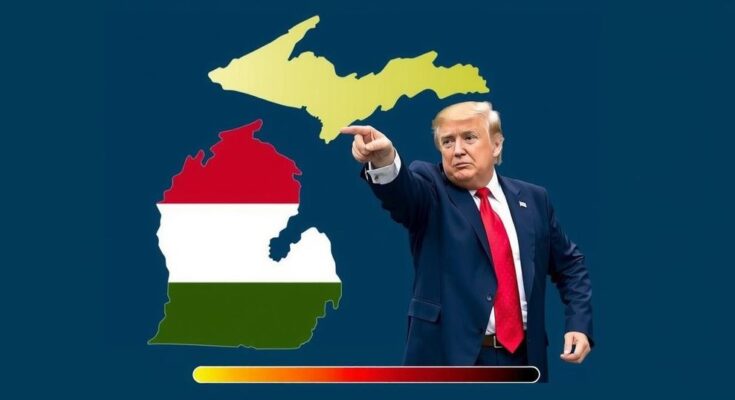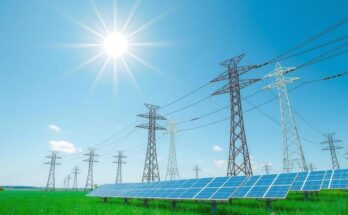Arab American voters in Michigan are demonstrating changing political allegiances, increasingly supporting Donald Trump ahead of the 2024 election. This shift is driven largely by anger over the Biden administration’s support for Israel amidst conflicts in Gaza and Lebanon. Community activists argue that the Democrats have taken their support for granted, seeking accountability in their political choices. Despite Trump’s history of anti-Arab rhetoric, his outreach has resonated with many disenfranchised voters, reflecting a broader re-examination of political affiliations within the community.
A notable shift is occurring within the Arab American community in Michigan as many voters are increasingly supporting Donald Trump in the lead-up to the 2024 US presidential election. The drive toward Trump arises primarily from discontent regarding the Biden administration’s steadfast support for Israel during the ongoing conflicts in Gaza and Lebanon. Activists, such as Yemeni American Samraa Luqman, express that the Democratic Party has long taken the Arab vote for granted, voicing their frustrations and declaring that they will hold Democratic candidates accountable for their policies related to the Israeli-Palestinian conflict. Luqman, who articulates her support for Trump, avows that backing Vice President Kamala Harris guarantees a continuation of a pro-Israel military stance, which she perceives as damaging to the Palestinian cause. Trump, though historically associated with anti-Muslim and anti-immigrant sentiments, has engaged with Arab Americans, claiming a desire to foster peace in the Middle East. In recent campaign events in Arabic-majority cities such as Dearborn and Hamtramck, Trump received a welcoming response from community members who feel disillusioned with the Democrats. Business owners, including Albert Abbas, articulated their frustration with existing political leadership, seeking urgent action to address the humanitarian crises in Gaza and Lebanon. This sentiment is contrasted by vocal dissent from community members who rebuke Trump’s past and present anti-Palestinian rhetoric. Dearborn’s Mayor Abdullah Hammoud has emphasized that such a shift toward Trump is a direct response to the Democratic Party’s failure to represent Arab interests adequately, stating, “People in this community know what Trump stands for.” Moreover, local figures such as Hamtramck’s Mayor Amer Ghalib have publicly endorsed Trump, citing a need for an alternative due to perceived leftist aggressiveness in discussions surrounding community values. However, critics highlight the complexities of Republican overtures to the Arab American electorate, pointing to Trump’s previous actions that harm their communities, which confounds the voter decision and raises critical discussions around accountability and representation.
In Michigan, particularly in cities with significant Arab populations such as Dearborn and Hamtramck, a political evolution is manifesting as the community grapples with disillusionment regarding traditional Democratic candidates. The ongoing conflict between Israel and Palestine, coupled with the Biden administration’s unwavering support for Israel, has spurred Arab American voters to reassess their political alliances. The complexities of Trump’s past policies towards Muslims and Arabs, contrasted with his current outreach efforts, are creating a distinctive political landscape. As members of the community express their frustrations publicly, they grapple not only with their choice for the upcoming election but also with their broader political identity and strategy moving forward.
The increasing support for Donald Trump among Arab voters in Michigan encapsulates a significant political evolution catalyzed by dissatisfaction with the Biden administration’s pro-Israel policies. Activists within the community are articulating their desire for accountability from political representatives, with many considering Trump’s candidacy as a viable alternative despite his controversial history. This transition reflects deeper underlying tensions within the Arab American electorate, as they seek to simultaneously assert their community’s political power and influence future elections. Ultimately, as this community navigates its electoral choices, it underscores the evolving dynamics of political representation and activism within the US.
Original Source: www.aljazeera.com




